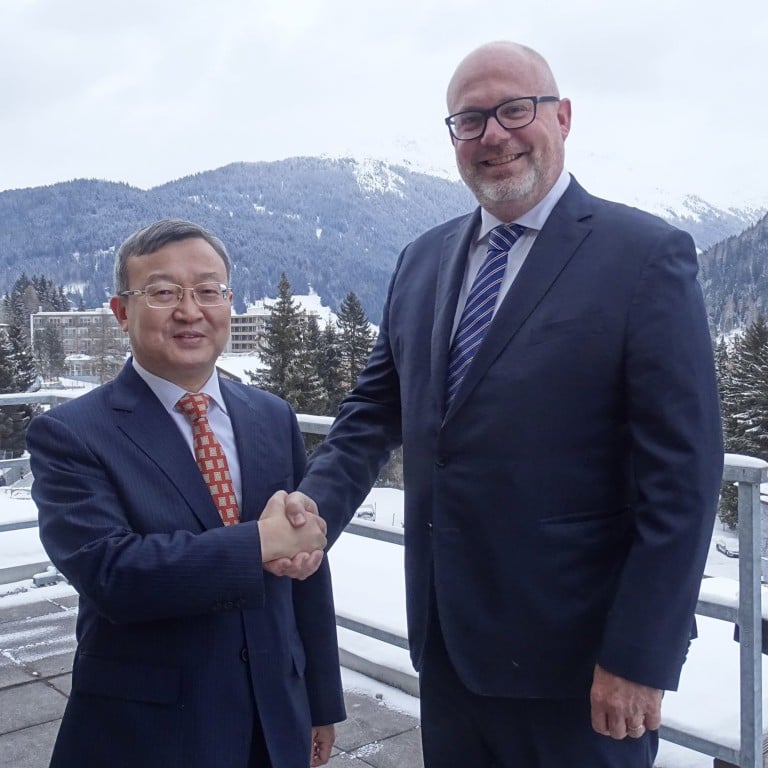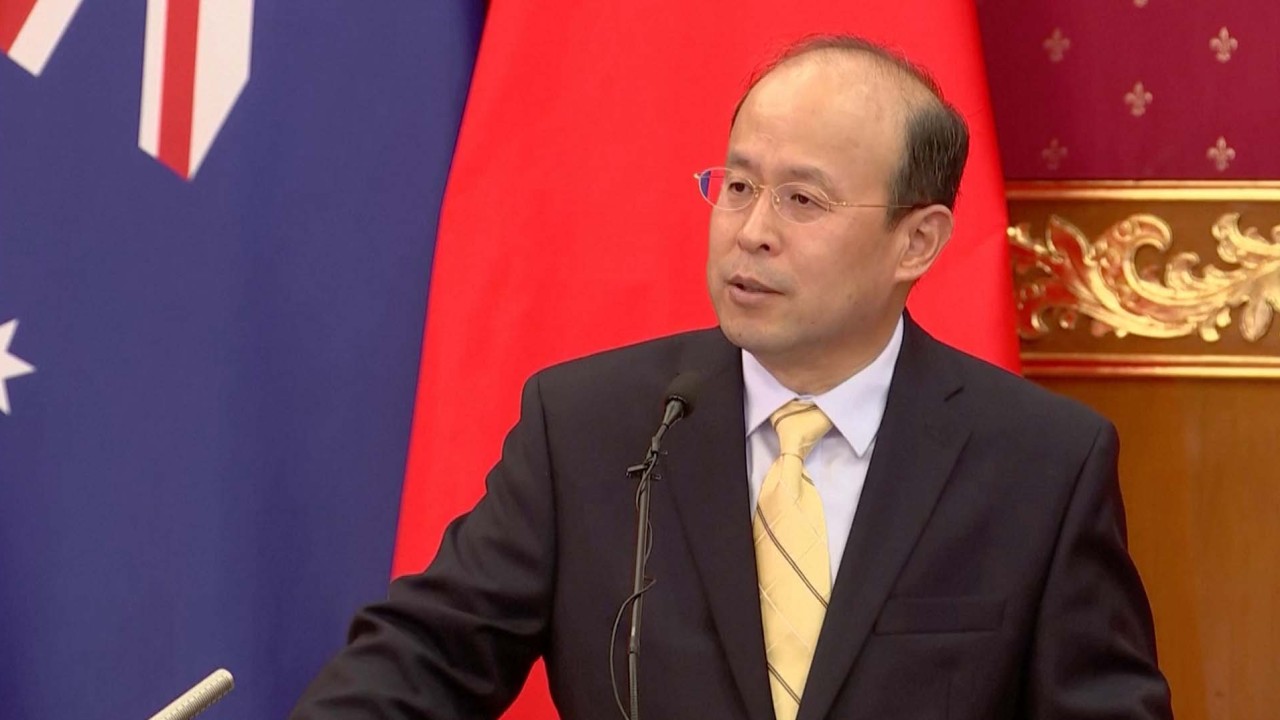
China-Australia relations: Huawei, ‘sensitive’ tech, critical minerals key test for long-term trade ties
- Chinese Commerce Minister Wang Wentao is set to meet Australian counterpart Don Farrell via video ‘in the near future’ amid an easing of trade and political tensions
- But issues over lithium, a key material in producing batteries for electric vehicles, and Chinese tech giant Huawei Technologies Co. mean ‘there’s a long way to go’
Despite the recent steps made by China and Australia on easing trade tensions, “sensitive” issues related to technology and critical minerals will be the key “test” for Canberra and Beijing to rebuild the bilateral relationship in the long run, analysts and academics said.
Chinese Commerce Minister Wang Wentao will also meet with Australian counterpart Don Farrell via video “in the near future”, according to a report by the state-backed Xinhua News Agency on Thursday citing unnamed sources.
Australia’s assistant minister for trade, Tim Ayres, on Friday also called for the removal of China’s “trade impediments” on Australian exports after meeting with Chinese counterpart Wang Shouwen on the sidelines of the World Economic Forum’s Annual Meeting in Davos.
Wang Huiyao, the founder of the Beijing-based Centre for China and Globalisation think tank, believes that the recent upturn in relations will lead to other economic cooperations, including the return of Chinese tourists and students because both countries have “no historical baggage and border disputes”.
But it has also been suggested that Australia should buttress its strategic and economic so-called middle power role in the region through balancing its relationship with the United States and China.
The US was the largest economy invested in Australia up to the end of 2021 with A$1.1 trillion (US$759 billion), compared to China’s A$91.8 billion ranking seventh, according to the Australian Bureau of Statistics.
Mark Beeson, a professor of political science and international relations at the University of Western Australia, said that Australian policymakers from both major parties struggle to deal with the “China problem” and all the associated economic and strategic issues.
There’s a long way to go and the test will be whether the new more positive language and meetings actually result in significant change around ‘sensitive’ security related issues like lithium and Huawei
“Things have improved a bit since Albanese [became prime minister in May last year] and China sent a new ambassador,” said Beeson, with Xiao Qian appointed China’s new envoy to Australia in January 2022.
“But there’s a long way to go and the test will be whether the new more positive language and meetings actually result in significant change around ‘sensitive’ security related issues like lithium and Huawei.”
David Morris, the vice-president at the United Nations Economic and Social Commission for Asia and the Pacific, said that it is “unlikely” that any Australian government will treat Huawei the same as other telecommunications firms in the foreseeable future as the geopolitical threat narrative has prevailed over the cybersecurity experts.
Lithium tie-up highlights China-Australia symbiotic bond amid green energy push
But Zha Daojiong, a professor at Peking University’s School of International Studies, said “it would be a welcome sign” if Canberra can treat Chinese bidders like Huawei in terms of technical reliability and economic competitiveness, including in 5G for non-military use.
He added that China needs “a renewed focus on economic dynamism” this year after it was adversely affected by its zero-Covid policy, including a restoration of its relationship with Australia.
Tony Walker, a vice-chancellor’s fellow at La Trobe University in Melbourne, said Chinese companies are “investing heavily” in Australian lithium prospects, given the projected demand for electric vehicles.
He added that there are concerns, with Australia and the US seeking to reduce their reliance on China, which produces 60 per cent of the world’s rare earths, which are critical components in missiles, firearms, radars and stealth aircraft.
As a major producer whose key export market is China, Australia should steer a middle course between getting pulled into such a competition
“This is an important national security issue since rare earths contain critical elements for defence equipment,” Walker said.
Morris added that critical global value chains are “more complex than a zero-sum US-China geopolitical contest”, while Australia’s interests are bound up due to their successful cooperation with both US and Chinese firms.
“The global race to secure access to lithium, as a vital strategic commodity, does have a clear potential to heighten the geopolitical rivalry between the US and China,” said Pichamon Yeophantong, an associate professor of international relations and development at Deakin University in Victoria.
“But as a major producer whose key export market is China, Australia should steer a middle course between getting pulled into such a competition.”
“The technological decoupling that has taken place over the past few years is unlikely to be reversed in the near future,” added Yeophantong.
“Especially with the latest US ban on equipment sales from Huawei and other Chinese telecommunications companies on the basis of national security concerns, Canberra may find it difficult to significantly change its stance on this issue.”
According to Walker at La Trobe University, the Albanese administration is “reasserting a middle power role in the Indo-Pacific” by showing a “less confrontational” relationship with China and more active diplomacy, especially in the southwest Pacific.
“Australia’s security ties with the US are a potential complication as far as relations with China are concerned, unless managed carefully,” he added.
Defence Minister Richard Marles said in December that Australia needs to be building “as much cooperation as possible” with the US in the Indo-Pacific, citing tensions over Taiwan.
“Security in the Pacific is multifaceted,” added Zha. “If anything, Australia and China should revisit the wisdom of three-way cooperation with Pacific island countries, particularly in the realms of disaster response, public health, and trade and investment.”


